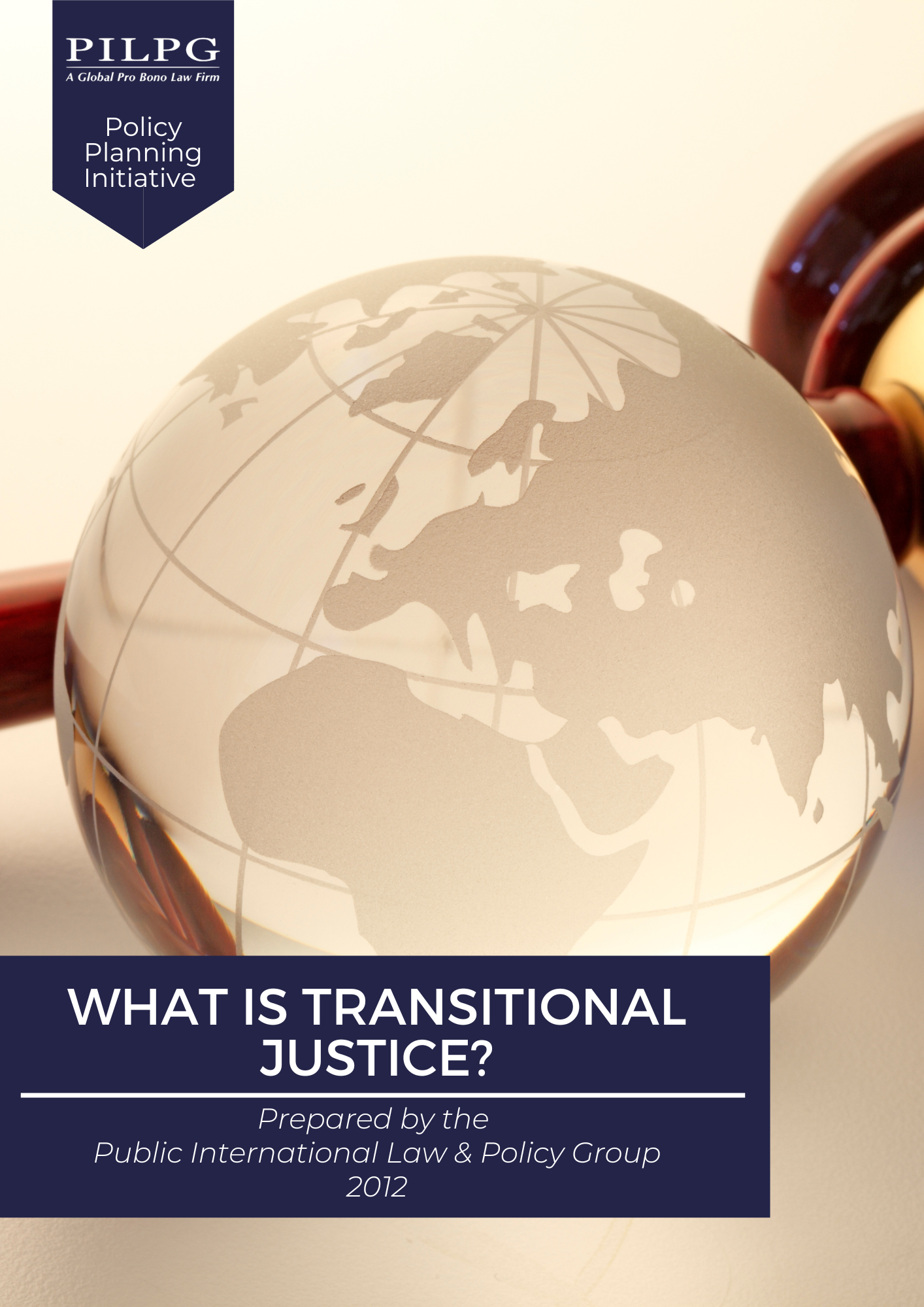Transitional Justice
PILPG has 30 years of experience advising civilians, civil society, and other parties on pursuing accountability for atrocity crimes and how to address the issue of accountability in an international peace negotiation. The resources on this page are meant to provide background on the opportunities for civil engagement in accountability, as well as on the process of addressing accountability in negotiations and incorporating transitional justice mechanisms in a peace agreement. Scroll through this page for: Background Reading, Guidelines & Best Practices, Educational Resources, Expert Insights & Interactive Tools
Background Reading
This section offers background reading including specific issues and considerations for transitional justice mechanisms and ways to approach the topic of accountability during peace negotiations. Click on the image to read the paper in English, some of the papers are also available in Arabic, click on the box ‘read in Arabic’ to access.
Guidelines and Best Practices
Educational Material
The following material includes short videos to familiarize civilians with the themes and mechanisms of transitional justice and accountability within international law and its best practices.
Expert Insights
The following videos provide expert insights into accountability, best practices for civilian documentation of human rights atrocities, analysis of accountability-related current events, and the role of women in transitional justice processes.
Interactive Tools and Resources
The following simulation on negotiating transitional justice in Sri Lanka, offer opportunities to put the knowledge acquired from this page to the test. The purpose of the negotiation simulation is to provide an opportunity to develop negotiation skills before actually sitting at the negotiation table.




















